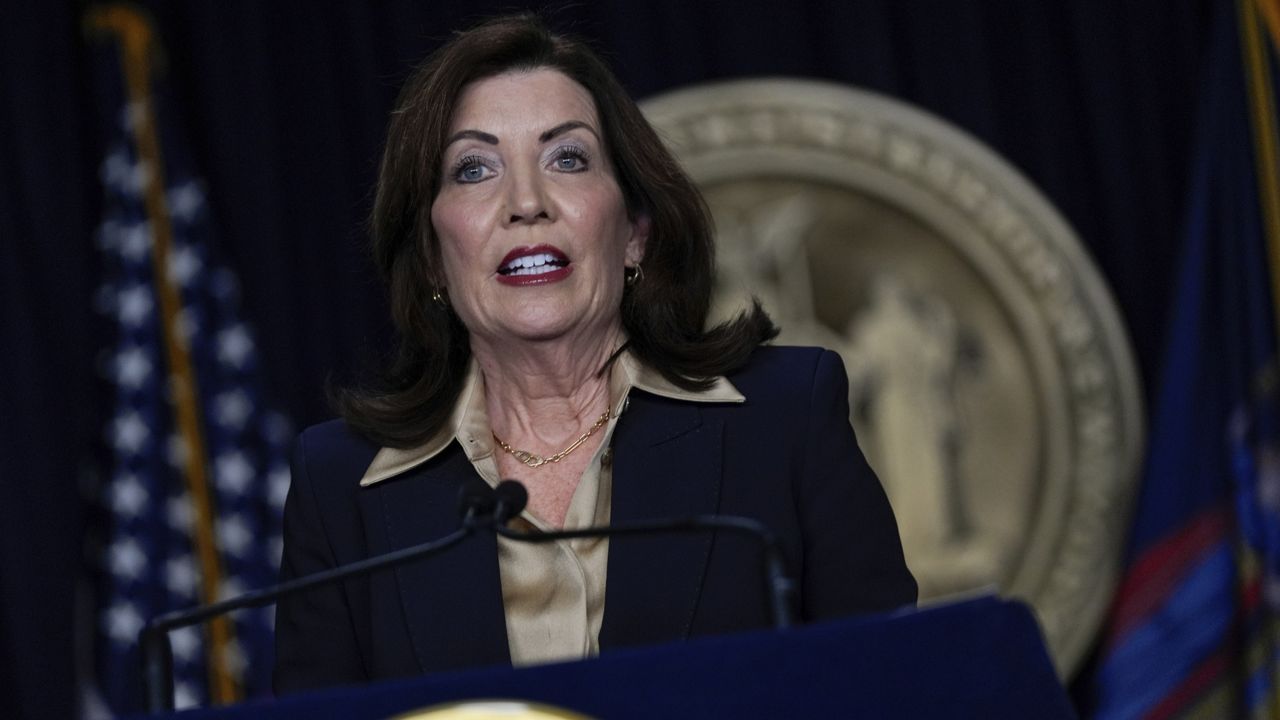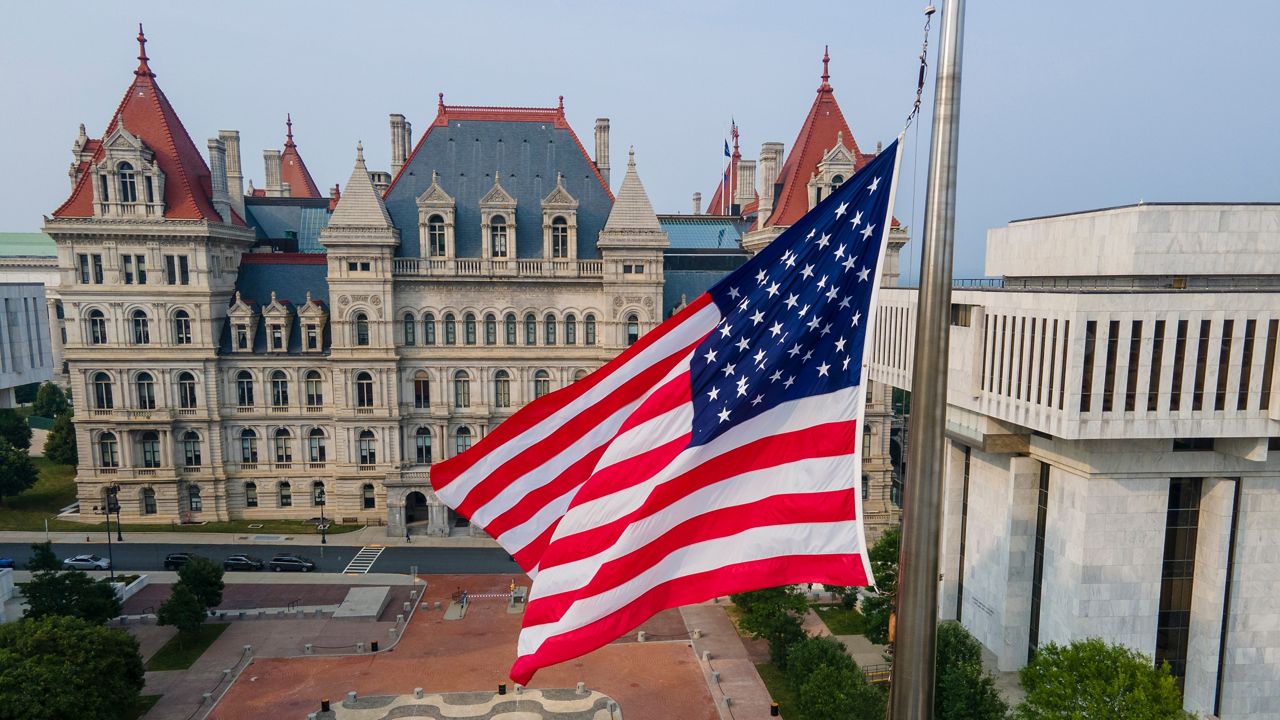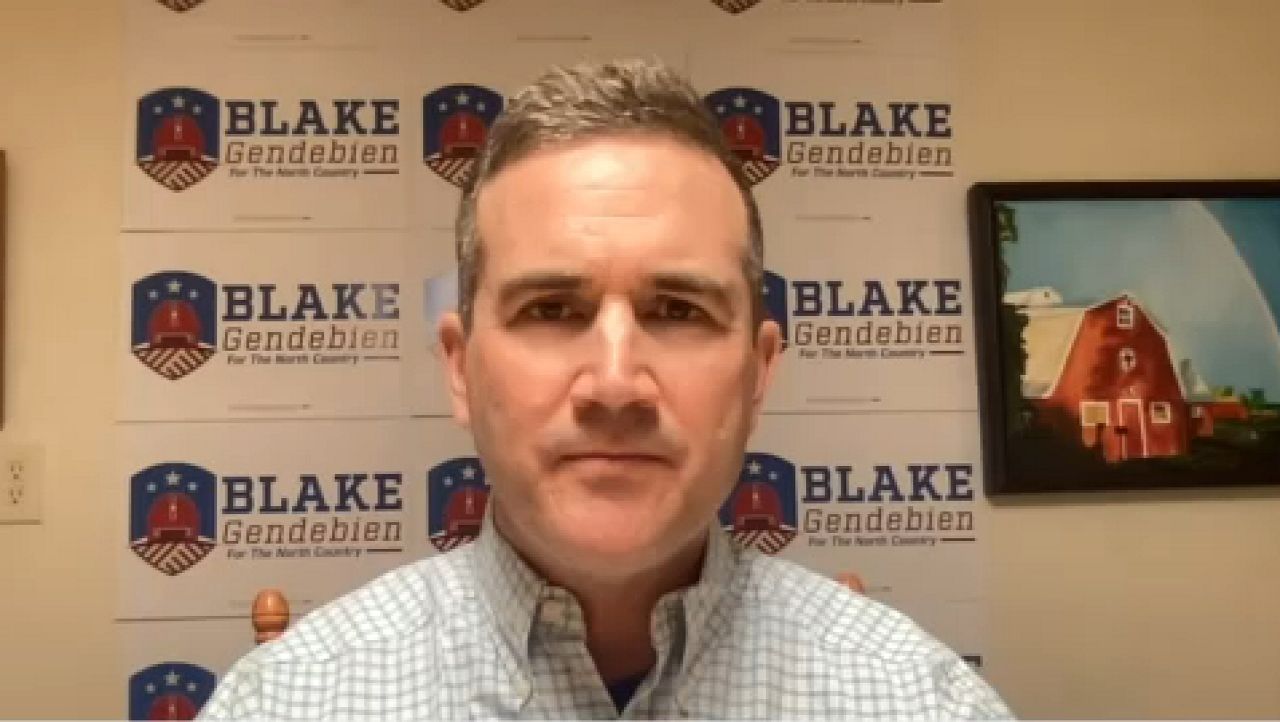It's been several days since New York budget officials commenced serious spending talks, and they have not moved very far from the starting line.
Budget officials in the Legislature have been embroiled in ongoing talks for hours each day this week, often until midnight, but continue to be stuck on a core component of the next record-high multi-billion-dollar plan: how much to spend.
"We don't even have table targets, so it's very difficult to gauge when this budget process will be over," Assemblywoman Amy Paulin said Thursday. "But that could change tomorrow. Once there's agreement on some of the big items, it moves very quickly, but as far as I know, that agreement hasn't happened yet."
The pressure is mounting in Albany with legislative leaders in the throes of negotiations to spend more than $233 billion, or the size of Gov. Kathy Hochul's proposed budget. The Senate and Assembly each offered counter-proposals with several billions of dollars more in revenue and spending close to a quarter of a trillion dollars.
The state budget deadlines April 1, or the day after Easter Sunday. Gov. Hochul has had her eye on finishing the spending plan before the holiday, or in one week — meaning the spending agreement would have to be completed early instead of on time.
NYPIRG Executive Director Blair Horner said the debate over revenue and the Legislature's aim to increase taxes on New Yorkers who make over $5 million will set the stage for the budget's timeliness.
"Both one-house budgets spend a lot more money than the governor does, and they raise revenues to do that – some of which the governor said are off the table," Horner said. "How do you solve that problem? I think that's going to determine how quickly the budget gets done."
Several lawmakers say they're still at the earliest stages of budget talks, and it's too soon to tell how quickly negotiations will progress.
Senate Deputy Majority Leader Mike Gianaris said he won't be surprised if an agreement is not finalized the first week of April, especially because of the Easter holiday.
"It's a tall order to get everything wrapped up with a bow on it in that time, but I think everyone is trying their hardest to get done as fast as we can," he said.
The Senate and Assembly proposals included specific financial plans for the first time, which Budget Division staffers said should speed up negotiations.
State budgets have been largely on time in New York over the last decade, but late agreements were a longtime staple in past administrations.
Late budgets became a longtime norm in Albany in 1978 when the budget was delayed after votes on an amendment were miscounted. Former Manhattan Assemblyman Dick Gottfried served in the Legislature for 52 years, and recounted his memories of that particular budget cycle, which shifted the urgency for a timely budget for decades.
"People noticed that after midnight on March 31, the lights did not go out," Gottfried said Thursday. "You know, there was no chaos. It was like Dumbo with the magic feather — nothing happened. And that just broke the magic spell."
Late budgets became commonplace, with some passed in the summer. That changed under former Gov. David Paterson, who put policy in a budget extender that was holding up a final agreement — forcing the Legislature to reach a deal.
Gottfried, who worked with nine different governors and seven Assembly speakers throughout his Albany tenure, said the Legislature and the governor's relationship dictates the atmosphere of budget negotiations and its timeline.
The former assemblyman said Hochul's relationship with the Legislature is one of the best he's seen.
"My sense is that her relationship with the Legislature is dramatically better than it is with almost all of the governors I served with," Gottfried said. "She's about as amicable, workable and [also] people in her administration. ... Andrew Cuomo had sharper elbows than any governor I've known, but I think Gov. Hochul's relationship with the Legislature is about as good as any governor I've seen, and I think that's a good thing."
An amicable relationship between the Executive Chamber and the Legislature could help for smoother negotiations and faster timeline, but could also lead to longer stalemates with legislative leaders depending on how Gov. Hochul plans to flex her executive powers.
The climate in the state Capitol remains calm for now, but leaders have yet to touch the difficult topics expected to create the most tension. The Legislature opposes Hochul's cuts to education and Medicaid and some of her proposals to combat retail theft, in addition to overcoming a two-year standstill on a housing deal.
With all state lawmakers up for election in November, legislative leaders have yet to show their hand in how hard they plan to fight against pieces of Hochul's budget agenda, and how long they're willing to fight past the April 1 deadline.
"Both houses add billions and billions of dollars in spending and they use that spending to generate new programs they'd like to see and expand their revenue," Horner said. "So if you turn off the spigot, the ultimate budget deal spends less than the Legislature is talking about ... So that could be the sort of significant stumbling block in getting the budget done. Now, if they can make that all go away, that's a different story."










